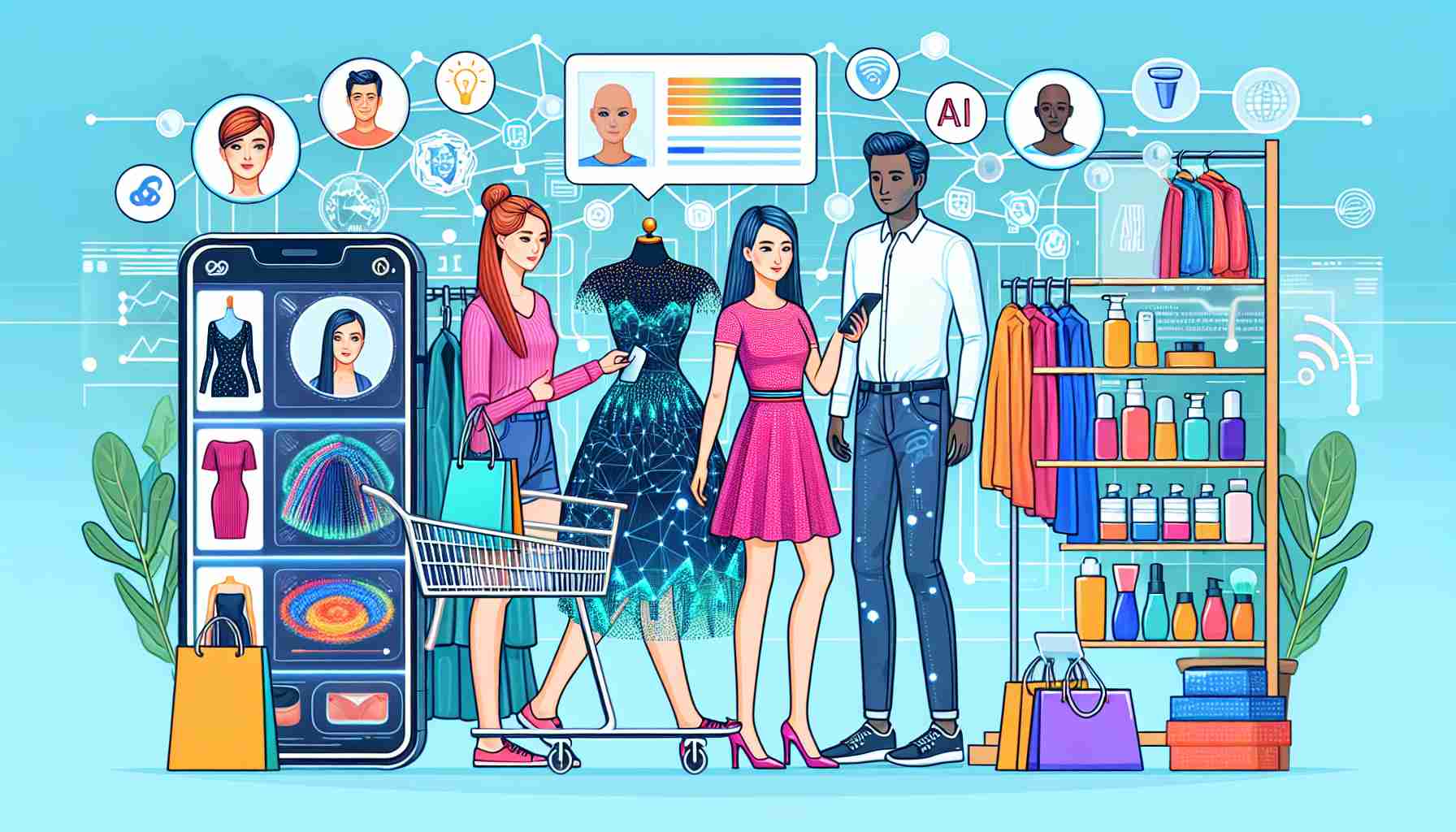
In an era where personalized experiences are not just preferred but expected, the fashion and beauty industries are harnessing the power of Artificial Intelligence (AI) to cater to the increasingly specific tastes and needs of consumers. Recognizing this shift towards tailored consumption, businesses are infusing AI technology into their digital platforms, offering customers a plethora of customized services from virtual try-ons to personalized shopping profiles.
Korean online fashion retailers, such as Ably, have implemented cutting-edge AI profiles that allow for virtual fitting sessions. This innovation not only enhances customer engagement by providing lifelike product imagery but also bolsters sales and customer traffic. Specific shopping malls have reported significant increases in monthly sales post the adoption of these AI-driven services, marking a successful foray into the realm of hyper-personalization.
Beyond virtual profiles, companies like Babba Fashion have taken a leap into creating personalized AI-generated lookbooks. Customers can now insert their images into an office look concept catalogue online, a service that merges practical utility with entertainment, receiving positive feedback from the market.
This approach to personalization extends to the beauty industry, with leading firms like CJ Olive Young rolling out ‘vibe curation’ campaigns that encourage consumers to switch up their makeup in tune with their mood, moving away from the traditional one-size-fits-all mindset.
Global giants in cosmetics production such as Korean Kolmar and Cosmax, as well as beauty conglomerates like AmorePacific and LG Household & Health Care, are not far behind, investing in AI-powered custom cosmetic solutions to keep pace with the bespoke trend.
Overall, the fashion and beauty sectors are doubling down on hyper-personalization, a strategy driven by a fine-grained understanding of consumer desires. With predictions indicating that the customized beauty market alone could quintuple by 2025, providing differentiated experiences is set to become a cornerstone of competitive advantage in the industry.
Current Market Trends:
The trend of AI-driven personalized shopping experiences in the fashion and beauty sectors reflects the broader movement towards personalization in retail. Brands are leveraging data analytics, machine learning, and computer vision to create more personalized user experiences, with services ranging from product recommendations to size and fit predictions. Subscription services and fashion boxes, which utilize customer data to curate personalized clothing selections, have also gained popularity.
Another trend is the integration of AI into mobile shopping apps, where augmented reality (AR) allows users to virtually try on makeup, eyeglasses, or even clothing items. Social media platforms are incorporating AI tools that enable users to shop directly from influencers’ posts that feature tagged items.
Forecasts:
Market research suggests that the personalization market in fashion and beauty will continue to expand. Personalized products are seen as a key driver for growth in e-commerce, with technology continuing to make this more scalable and cost-effective. As per industry forecasts, the global personalization software market is expected to grow significantly, with an increasing compound annual growth rate (CAGR) over the next few years.
Key Challenges and Controversies:
As with any technological advancements, AI-driven personalization faces its share of challenges. One major concern is privacy and data security, as these services often require the collection and analysis of sensitive customer information. Ensuring data protection and addressing fears of surveillance and data misuse is critical for maintaining consumer trust.
Algorithmic bias is another issue, as AI systems can perpetuate existing prejudices if not properly trained on diverse datasets. This can lead to an unrepresentative range of styles or beauty products being recommended to different demographics.
Advantages:
AI-driven personalization brings several advantages, such as improved customer satisfaction due to the highly tailored nature of shopping experiences. It can increase conversion rates and customer loyalty by presenting users with options that are more aligned with their preferences. Moreover, AI can enhance inventory management through predictive analytics, helping retailers stock items more efficiently based on personalized demand patterns.
Disadvantages:
Conversely, the reliance on AI can lead to over-standardization if not properly implemented, where personalized recommendations become repetitive or fail to introduce customers to new products. There is also the potential for technological glitches that could lead to poor user experiences. Additionally, the cost of implementing sophisticated AI systems might be prohibitive for smaller businesses.
For further insights into the evolving landscape of AI-driven personalization in the fashion and beauty sectors, visit the following websites:
– Nielsen for market research and analysis.
– McKinsey & Company for insights on how personalization is affecting the retail industry.
– Forrester for predictions and trends within the technology and fashion sectors.
[embedded content]
